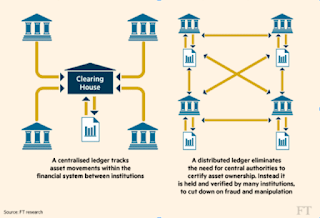🚨 Crypto Startups Seeking Bank Charters: Innovation or Instability?
A recent Bloomberg Opinion spotlighted deep-pocketed crypto firms like Circle, Ripple, BitGo, and Erebor, all reportedly applying for U.S. trust-bank licenses. While these charters promise access to deposit-taking, lending, and payments infrastructure, financial analysts are sounding alarms that such moves echo the Silicon Valley Bank (SVB) collapse—raising risks of concentrated exposure and sudden runs (livemint.com).
1. 🎯 Why Crypto Firms Want Banking Licenses
Crypto startups aim to bridge the gap between financial innovation and mainstream services:
-
End-to-end financial services: No more dependency on third-party banks for fiat transactions, lending, or custody—self-owned infrastructure becomes feasible.
-
Regulatory legitimacy & trust: A charter can confer stability and credibility in a skeptical environment.
-
Policy tailwinds: Under the current U.S. administration, regulators are actively encouraging new bank formations to fuel innovation and economic growth (en.wikipedia.org, reuters.com).
2. ⚠️ Déjà Vu: The SVB–Signature–Silvergate Saga
SVB’s Collapse
SVB fell victim to a liquidity crisis fueled by a sudden withdrawal of deposits from tech startups and venture capital clients when rates rose, leading to insolvency.
Crypto-Focused Banks Crumbling
-
Silvergate Bank—once a crypto pioneer—collapsed in early 2023 after its digital-asset-driven deposit base evaporated following the FTX collapse (en.wikipedia.org).
-
Signature Bank imploded under similar pressure, with crypto deposits making up 30% of its base and contributing to systemic risk (en.wikipedia.org).
The pattern is clear: high concentration in volatile deposits, regulatory vulnerability, and fragile risk controls .
3. 🏦 Who’s Entering the Fray?
| Firm | Charter Seeker | Role in Crypto |
|---|---|---|
|
|
|
|
|
|
|
|
|
|
|
|
| Anchorage DB | Already chartered (2021) | Trusted crypto bank pioneer (livemint.com) |
These firms aim to offer integrated crypto-fiat services—potentially simplifying user experiences but inheriting the full spectrum of banking risks.
4. 🧩 Structural Weaknesses: What’s the Worry?
Experts like Yale’s Steven Kelly and Chicago Fed’s Jonathan Rose point to recurring systemic flaws:
-
Deposit concentration: Heavy reliance on single sectors—like startups or crypto—makes liquidity vulnerable to contagion.
-
Funding fragility: Minimal retail or institutionally diversified funding leaves banks exposed to panics.
-
Weak risk frameworks: Rapid growth without robust liquidity or interest-rate risk management invites failure (onesafe.io, en.wikipedia.org).
Without proper guardrails—deposit caps, liquidity buffers—these firms may fall into the SVB trap all over again.
5. 🌐 Regulatory Landscape—Encouragement Meets Caution
-
Regulatory support: The White House and OCC have expressed openness to new fintech and crypto banking models, easing charter approvals (reuters.com).
-
Banking community's caution: Major banks like JPMorgan and Bank of America are proceeding steadily, not recklessly—opting for pilot programs in custody and stablecoins while highlighting compliance concerns (reuters.com).
-
System risk warnings: Federal Reserve officials have highlighted the potential for crypto banking to pose wider financial-system threats if not managed carefully (axios.com).
6. 🔍 Implications for Stakeholders
📈 Investors & Customers
-
Diversify deposits: Don’t park all funds in crypto-driven banks—consider traditional banks or stable funding options.
-
Demand clarity: Scrutinize liquidity models and contingency plans in these emerging banks.
-
Know the volatility: Understand how interest rates and crypto slumps can trigger deposit runs.
🏛️ Regulators & Policymakers
-
Enforce deposit limits: Cap industry-specific deposits to curb systemic exposure.
-
Stress testing: Mandate liquidity and interest rate resilience for crypto-chartered banks.
-
Transparency is key: Spell out risks and compliance expectations upfront to avoid regulatory ambiguity.
7. ⭐ Final Take: A Place for Crypto Banks—With Caution
Crypto startups don’t have to shun banking—or the benefits it brings—but must acknowledge the inherent liabilities:
-
Past failures prove that without diversification, strong risk controls, and oversight, instability is almost inevitable.
-
If regulators champion innovation, they must shape standards that ensure stability—or risk a repeat of 2023's turmoil.
Charters alone won’t fix structural vulnerabilities—but carefully designed, well-resourced, and regulated crypto banks might just lead the next wave of financial innovation.
💬 Discussion Questions
-
Should crypto firms really hold banking charters—or is hybrid fintech licensing safer?
-
What risk controls are non-negotiable to prevent a crypto-focused bank failure?
-
Can regulators foster innovation while avoiding the same mistakes of yesteryear?
Let’s unpack this!
Disclaimer: This is informational content only—not financial or regulatory advice. Always assess individual risk carefully.





Comments
Post a Comment